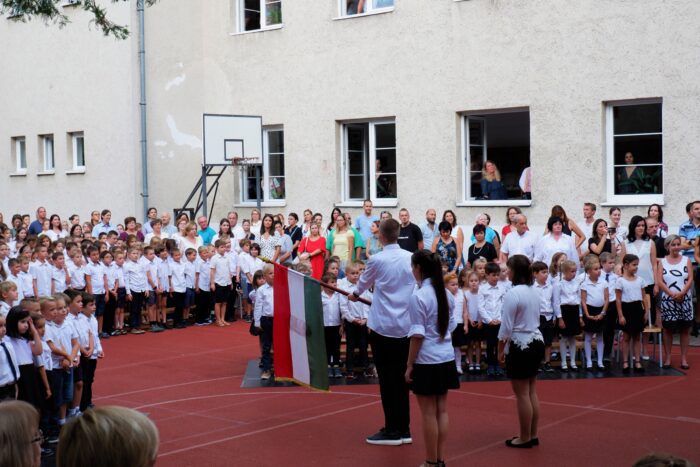The Progressive Post
First years last forever
Despite the evidence from research and practice, as well as substantial investment in early childhood education and care in Europe, there is still a long way to go to achieving access for all children to high-quality free services that pay special attention to children in vulnerable situations, in respect of child rights and developmental needs.
Early childhood education and care services (ECEC) for children before primary school education have two aspects: childcare to enable parents to work while the child is cared for, and education in a broad sense, to support child development, evolving capacities and a joyful childhood. Both aspects need highly qualified, motivated, respected, and valued personnel, as well as suitable conditions to enable the best development of children. It is becoming increasingly accepted that early years’ provision is the foundation for one’s entire life and that offering this in the best possible way serves the interest of children as well as of society overall.
EU leaders have acknowledged ECEC as a core social right of all children in Europe. One of the 20 key principles of the European Pillar of Social Rights acknowledges children’s right to good quality and affordable ECEC, emphasising that those in vulnerable situations have the right to specific measures to ensure equal opportunities. The EU Quality Framework for ECEC was a proposal by experts from various European countries in 2014. It has five dimensions – access; workforce; curriculum; monitoring and evaluation; governance and funding – and could serve as a guideline for the implementation in all member states.
The European structural and investment funds (ESIF) make an important contribution to the implementation of child policy reforms, and are sustained through funding from national budgets. The planned Child Guarantee programme is also meant to prioritise ECEC for children in disadvantaged situations. Independent monitoring and evaluation, as well as outcome measurement of the ECEC programmes supported by the EU, should be required to ensure their proper planning, implementation, efficiency, and effectiveness. The evaluation of ECEC programmes should consider the parents’ as well as the children’s perspective and opinion.
According to the latest Eurydice Report in 2019, around 31 million children in the EU are below school age. These children are the potential beneficiaries of ECEC. However, on average only 34 per cent – approximately five million children under the age of three – attend ECEC, and only seven EU member states guarantee a place in publicly funded provision for each child from an early age. Almost half the EU member states guarantee a place in ECEC from age three, with a growing number of countries making attendance compulsory for children during at least the last year(s) of ECEC. The EU benchmark of 95 per cent of children above four attending early childhood education and care has by and large been achieved, but there are still substantial differences across countries, regions, and areas.
Children and families who need these services the most often lack the opportunities to access them, or if they do have access, the quality of care is often insufficient. There are inequalities, discrimination, segregation, poorly equipped and resourced services, as well as often poorly qualified and remunerated caretakers.
ECEC should be part of an integrated system, considering the diverse needs of children from different backgrounds and conditions, and providing them with an individual, needs-based education. Applying integrated and child-centred approaches that cater for all aspects of child development and well-being and that further strengthen the coordination and interaction between health, education, social and child protection systems, as well as integrated and coordinated service delivery at a local level, would improve the quality and effectiveness substantially. ECEC should be free of charge, like primary and (in most countries) secondary education.
Home-based care for the youngest children, or for those with special needs, provided by childminders, needs more guidelines, assessment, and preparation but there are still only a few countries where this takes place. This type of service can offer more flexibility and opportunities for children with specific needs, and would be efficient in settlements with a small number of children, for example, or for parents with irregular working hours.
Tackling child poverty and social exclusion, as well as promoting child rights and well-being, requires a multisectoral, multidimensional and integrated approach, in which early years education plays a key role. Children with special needs, Roma, migrant, refugee children, and others in especially vulnerable situations often face multiple barriers in all areas of their life. Their inclusive participation in ECEC is therefore extremely important. It also means early support and prevention for them and their families, and access to more targeted services or out of home placement for the children. Parents should be considered as partners who need proper information, support, and guidance. This has a positive impact on the development of children, and provides a good model for cooperation.
ECEC services should be more flexible and provide for longer hours and additional services, depending on the needs and opportunities of the families. These services should also take into consideration the developmental needs of children in order to offer the best staff-child ratio and group size. Furthermore, there should be a smooth transition between ECEC and primary school in line with the evolving capacities of children.
The recently launched European First Years First Priorities Campaign on early childhood development, led by Eurochild and the International Step by Step Association (ISSA), prioritises children from birth to six years old, and pays special attention to the first 1,000 days of the child’s life and to the most vulnerable children (Roma and Traveller, migrant and refugee children, children with disabilities, those at risk of entering, or in, alternative care, and those living in extreme poverty). The nine participating EU member states will help create broad coalitions of national and international partners for stronger policies and practices. These coalitions will provide useful information for EU policies, as they exchange good practice among the member states.
In 2019, the EU institutions approved new work-life balance legislation that introduces minimum standards for paid parental leave across the EU. There should be changes in the new policy to ensure that parental leave is paid for at least six months, taking into consideration the exclusive breastfeeding recommendations of the World Health Organization and the importance of early bonding and attachment. Nordic experiences have shown this to be favourable and cost-effective. It should be covered by social security or health insurance as a universal service for all. Six-month parental leave also has an impact on ECEC service needs, as well as on the work-life balance. More research is needed into the impact of leave provisions on the well-being of children and parents. Investing in children ensures their well-being, and also the best and most profitable opportunity for the whole of society, given the social return on investment. Children are not only the future, but they are also the present, and they have the right to enjoy their childhood in the fullest possible way.
Related articles:
- A rethink of EU education policies, by Jernej Pikalo
- Implementing the European Skills Agenda, by Siria Taurelli
- Towards a European Education Union, by Victor Negrescu
- First years last forever, by Maria Herczog




